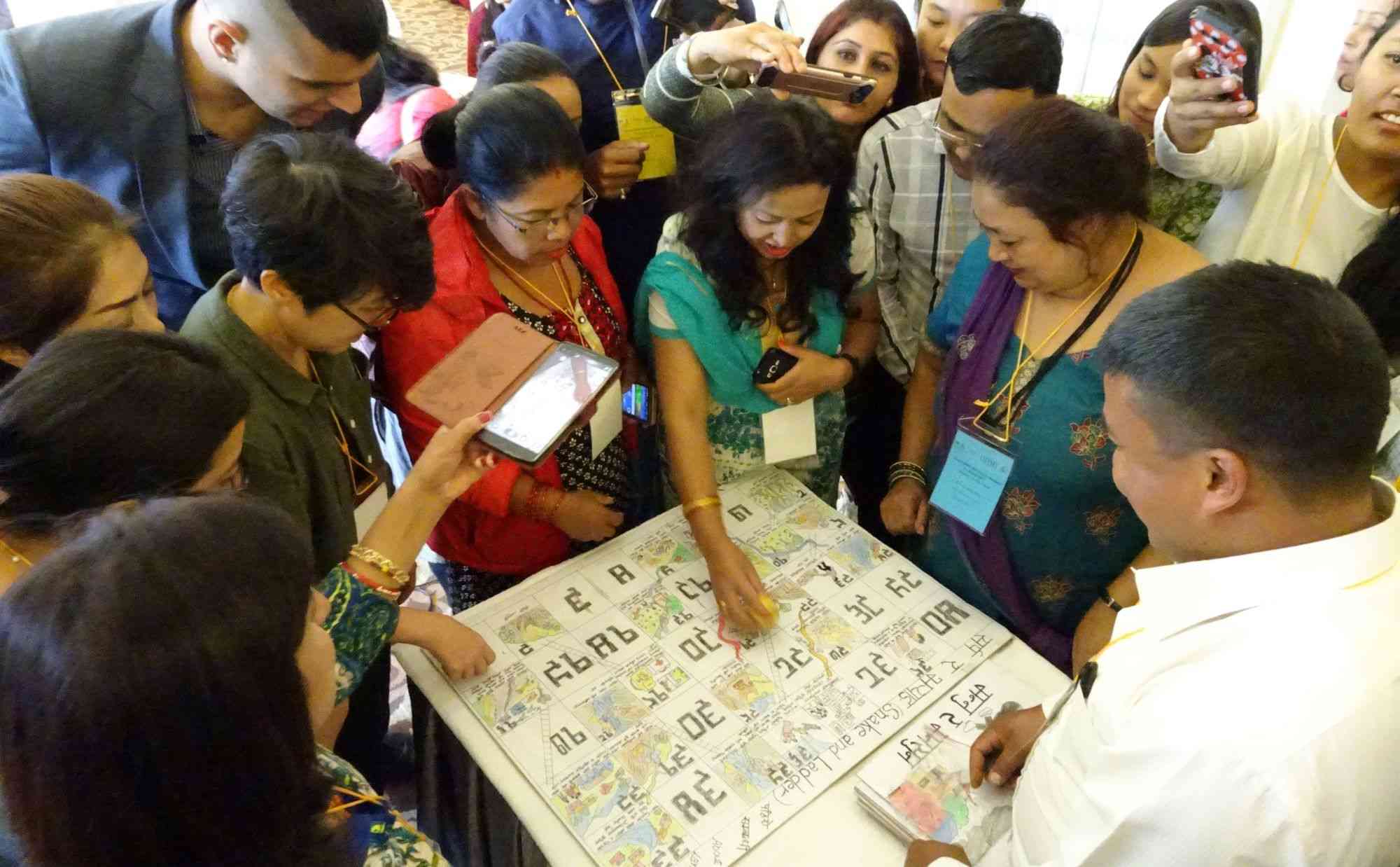School Based Sustainable DRR Education and Material Development Project in Nepal
A project aimed to increase DRR education and knowledge throughout communities in Nepal, focusing on providing DRR education toolkits and capacity building to teachers, and thus children, their families, and the community.
Description
The 2015 Gorkha Earthquake in Nepal showed the need for widespread DRR education in municipalities. However, schoolteachers expressed they did not have sufficient DRR knowledge to conduct DRR trainings. As such, this project aims to distribute DRR education materials throughout communities by giving schoolteachers the capacity to develop their own unique education materials and programs to train children in disaster preparedness.
The objective of this project is to integrate disaster preparedness education into the school curriculum in four target schools, using educational materials developed by the teachers themselves throughout the project. In addition, the materials will be continuously developed and improved based on the needs of local schools and communities to provide students with specific knowledge on disasters caused by natural hazards, particularly earthquakes.
The initial stage of this project investigated and analyzed the current situation of disaster preparedness in the target communities through interviews with schoolteachers and parents. Awareness-raising disaster teacher-training seminars were then conducted, providing schoolteachers with the know-how to develop educational DRR materials. In addition, the materials will be continuously developed and improved based on the needs of local schools and communities to provide students with specific knowledge on disasters caused by natural hazards, particularly earthquakes.
Did the Sendai Framework change or contribute to changes in your activities/organization? If so, how?
The Sendai Framework contributes by providing the guiding principles to how CityNet Yokohama Project Office approaches DRR initiatives in its projects. For instance, we also value the call from the Sendai Framework to increase education and awareness of disaster risk in accordance with legislation, national practice and educational curricula. Furthermore, there is also conceptual support for training and education using existing mechanism and peer learning, among other relevant linkages with our commitment.
What led you to make this commitment/initiative?
What was your position before making this Voluntary Commitment / prior to the Sendai Framework?
This project was committed due to the great need for disaster preparedness education throughout communities in Nepal, exhibited by the under-preparedness for the 2015 Ghorka earthquake. Prior to this commitment, CYO has always regarded DRR education and community-based disaster awareness campaigns to be highly important for developing the capacity of communities to be disaster resilient.
Deliverables and Progress report
Deliverables
Deliverables are the end-products of the initiative/commitment, which can include issuance of publications or knowledge products, outcomes of workshops, training programs, videos, links, photographs, etc.
Over two sessions, schoolteachers from the five target municipalities came together and were trained on how to develop educational DRR materials, then worked to design their own DRR education lessons.
After attending workshops to develop their own DRR educational materials, teachers then implemented them in schools to raise the disaster awareness of their students.
Porgress report
The training of teachers for the five municipalities were completed in 2019 and DRR Education Clubs established in all participating schools. However due to the ongoing pandemic, all schools in Nepal have been closed since February 2020.
Despite the closure of schools, teachers of the DRR Teacher's Club are continuing to exchange ideas on how health related topics can be included in DRR education for further tool development.
At the end of the last project year 2019, Nepal's first DRR Learning Center was established to provide a knowledge sharing base for not only teachers but also public officials, members of the community and school children to be able to understand, practice and innovate further DRR related material applicable to Nepal.
Through a separate project, online training of additional schools in rural Nepal is now being undertaken with the pioneering teachers as a peer group to disseminate proper DRR Education in Nepal.
Organizations and focal points
Implementing Organization(s)
Focal points
Partners
